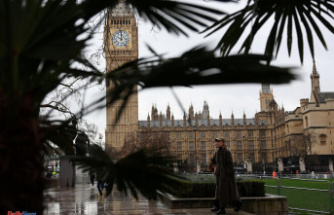The 9-euro ticket will soon be over. The state government and transport companies saw overwhelming demand. But there is still a lot to do for a new edition.
Magdeburg (dpa/sa) - The 9-euro ticket has led to significantly fuller trains on some railway lines in Saxony-Anhalt. In some cases, the utilization from June to August was more than three times higher than in May, as a spokesman for the Ministry of Transport said. In particular, the number of travelers shot up on the RE3 connection from Wittenberg to Berlin. "The very simple possibility of use has obviously massively lowered the often discussed access barriers to public transport," said the spokesman shortly before the end of the discounted ticket. Many people were encouraged to try out local public transport.
However, the nationwide use of the ticket has put a heavy strain on resources such as vehicles, staff and stops, according to the ministry. In particular, on the routes frequented by tourists, such as in the Harz Mountains, it has become apparent that large parts of the rail network are not equipped for significantly more passengers, said traffic experts. For the companies, this three-month period was an enormous additional challenge. In June alone, more than 400,000 tickets were sold in Saxony-Anhalt.
Although there were occasional responses with additional wagons, these were often not sufficient for the onslaught of travellers. Trains sometimes had to be cleared by the federal police because of overcrowding. Transport Minister Lydia Hüskens (FDP) clearly identified the weaknesses: "Due to scarce resources in terms of vehicles and staff, further increases are hardly feasible in the long term, despite all efforts." The infrastructure is simply not well equipped for this noticeable increase in passenger numbers.
You can't point fingers at each other in the event of any omissions, said Hüskens. "We have to talk about that, both in Berlin and in Magdeburg. Negotiations on the future design of regionalization will be tough." Whether there will be a follow-up offer is currently being hotly debated.
The staff in particular reached their limits in the three months. The loudest opponents of an extension of the 9-euro ticket are the trade unions. "The workforce has reached the breaking point and in some cases exceeded it," said the Vice Chairman of the Railway and Transport Union (EVG), Martin Burkert, at the end of July. The train drivers' union GDL made a similar statement at the time.
The transport companies also express a need for adjustments if there is a discounted ticket in the foreseeable future. "For the transport companies, the 9-euro ticket did not provide any additional income, since the federal government's compensation payments for the ticket are capped on the basis of the 2019 income level," said a spokeswoman for the Central German Transport Association. The companies would have moved significantly more people and would not have earned a cent extra with the current dramatic cost increases.
According to the Central German Transport Association, the consequences could be higher fares, reduced services and investments in infrastructure. Local transport in Germany is not adequately financed under the given framework conditions and expectations for the future, said the spokeswoman. With a view to a "real traffic turnaround" and an expansion of the transport offer, there is a lack here at every nook and corner.












